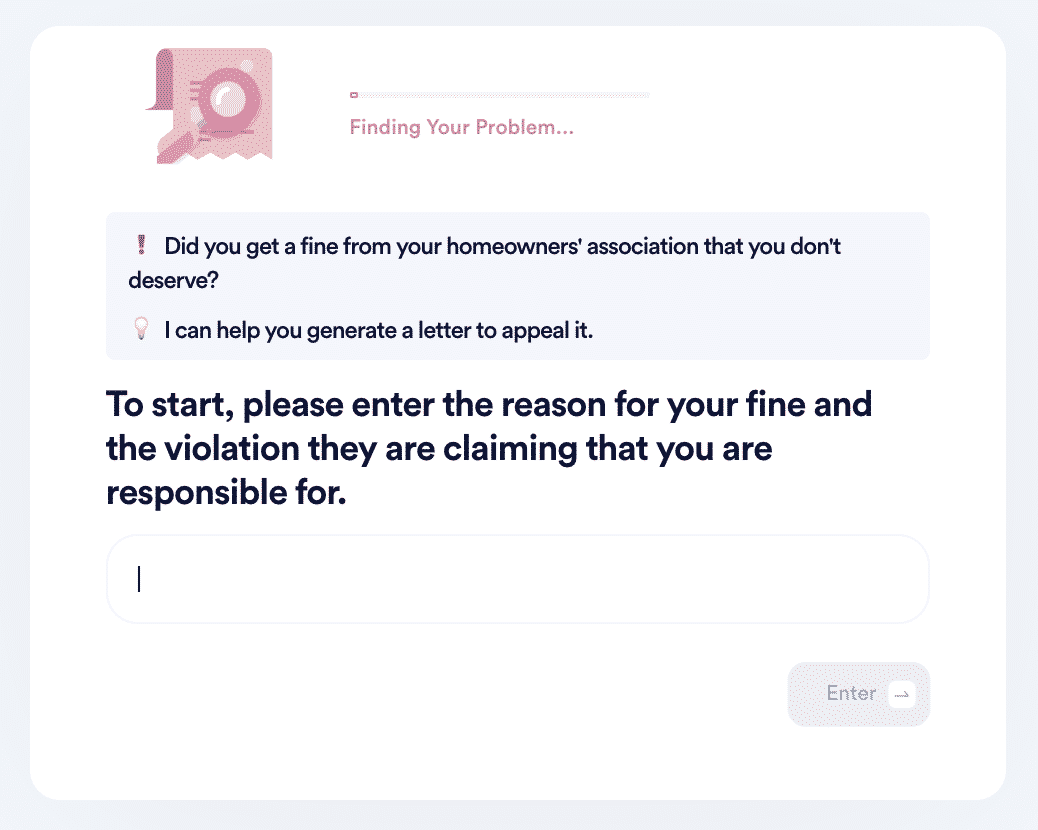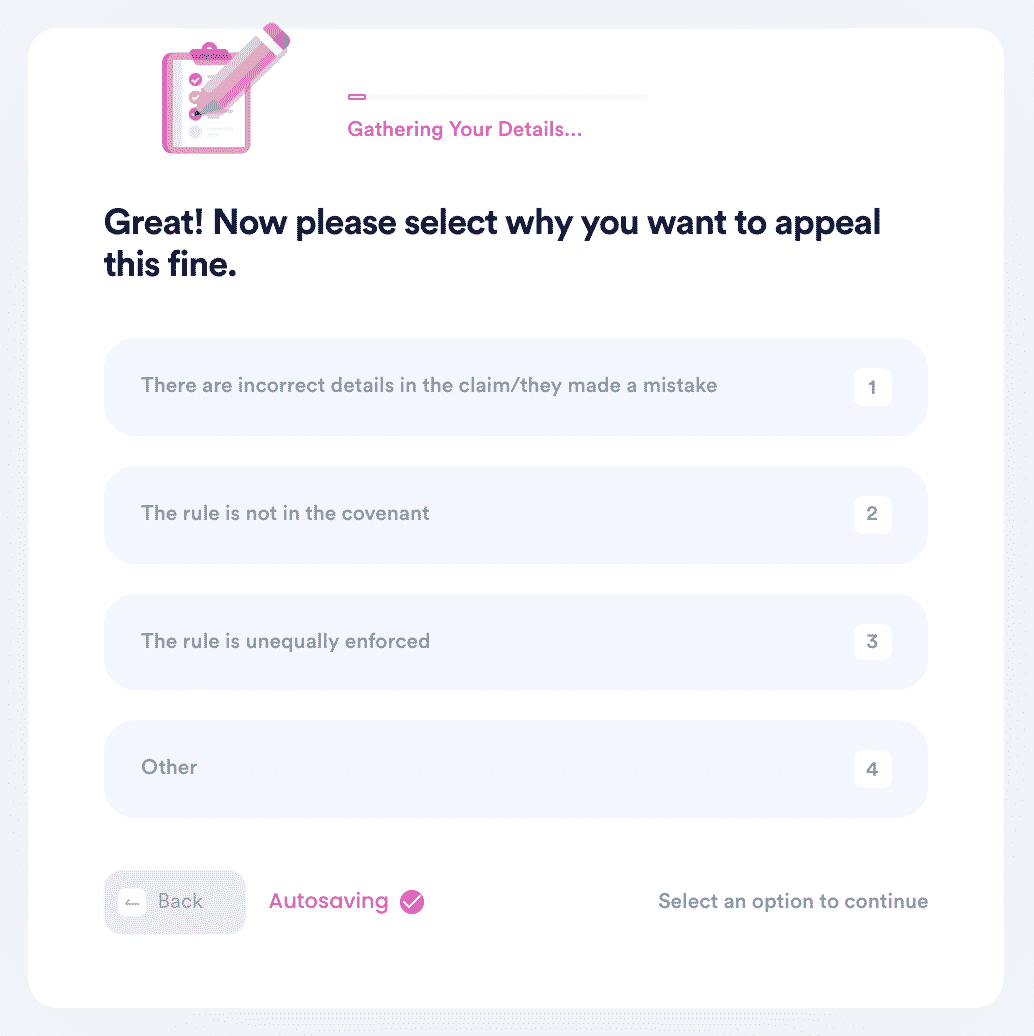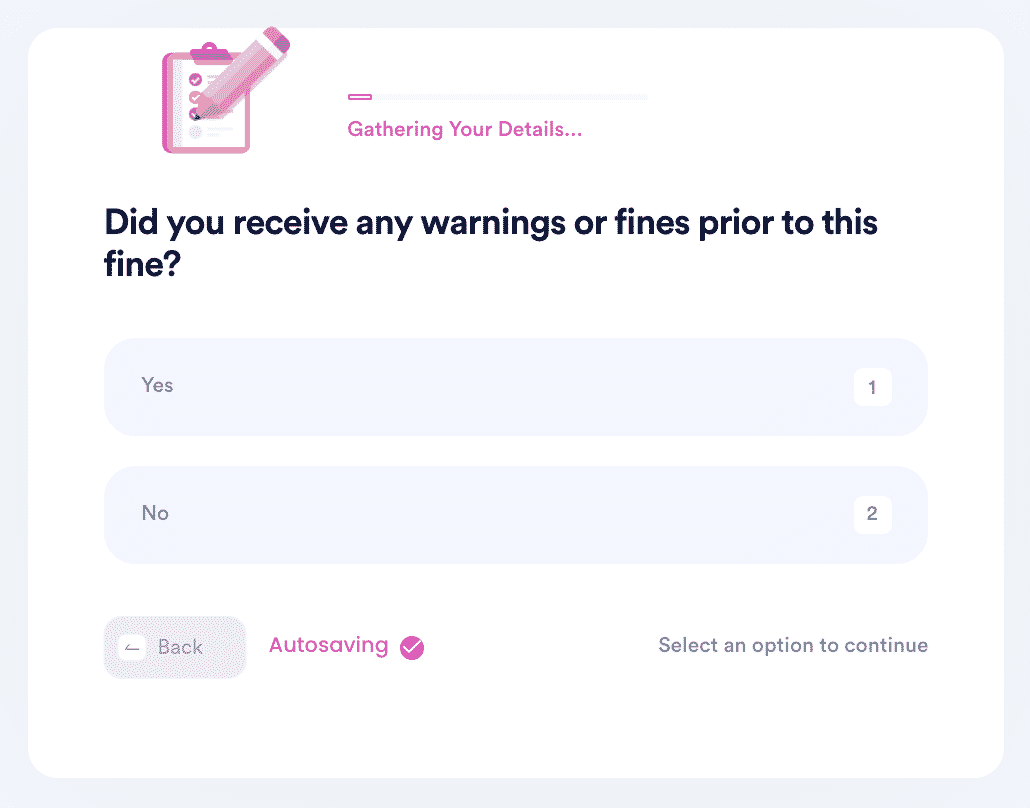How to Deal With Real Property HOA Fraud In PA
About 25% of homeowners in Pennsylvania own property within a community managed by Homeowners associations (HOAs). HOAs are run by volunteer board members who regulate members' activities to ensure an orderly and more cohesive neighborhood. Unfortunately, groups run by volunteers are prone to fraud, embezzlement, scams, and illegal activities, and that HOA boards are no exception. If you suspect your HOA is involved in fraud activity, consider filing a complaint.
DoNotPay can help you file a complaint about . We will generate your complaint letter on your behalf with a two-week deadline for their representatives to either resolve the issue or contact you with more information.
Can HOA Board Members Commit HOA Fraud?
Homeowners' association fraud or HOA fraud is a term describing the white-collar fraud done in connection with an HOA. Usually, the people accused of are generally members of an HOA board. Dishonest board members may exploit the fact most volunteers have little financial knowledge to manage HOA funds. They are also aware board members may not have enough time to scrutinize each property transaction due to family and professional commitments. Such members may alter books to embezzle money and commit other fraudulent deals.
Common Warning Signs of HOA Fraud?
The following are some of the common signs of fraud to watch within your community:
- Incomplete or missing records
- Delayed bank deposits
- An unexplained rise in accounts receivables
- Duplicate payments
- Late bank reconciliations
- Duplicate payments
Does Pennsylvania Protect Homeowners From HOA Fraud?
In 2018, the Pennsylvania Senate approved HB 595 bill which amended provisions of the Pennsylvania Uniform Condominium and Planned Community Acts and the Real Estate Cooperative Act. The bill provided homeowners within planned communities with tools to settle disagreements within the community. The main goal of the bill is to give unit owners and board members in these communities the ability to get assistance and investigation when they suspect illegal activity from either party. Some of the crucial features of the bill include:
- HOAs must include in their bylaws procedures for alternative dispute resolution (ADR) between owners and the board.
- The right to file a complaint with the Pennsylvania Attorney General's Bureau of Consumer Protection whenever owners suspect a violation.
How Can Members Protect Their Assets Against Fraud?
HOAs need to take basic steps to guard against financial crimes and fraud. The following are some of the ways to protect HOA assets from fraud:
- Choose a reputable HOA management company
- Demand timely financial reports
- Review financial reports regularly
- Ensure prudent management of bank accounts
- Undertake independent audits
- Ensure there is proper insurance in place.
- Train board members in accounting and bookkeeping
Although this action doesn't guarantee against fraud, they help to reduce the risk of theft substantially.
Steps to Take When You Suspect HOA Fraud
HOA fraud can impact the entire community if not resolved immediately. If you suspect deceitful activity within your HOA, take the following steps:
| Board members and community members have a right to access association records at any time.
Go through copies of financial documents and titles to check for discrepancies. Some of the documents to check to include statements, budgets, audits, vendor contracts, tax returns, invoices, and more. |
| Document as much evidence as possible to support your claim. HOA fraud is a serious claim, and it is essential to have as much information as possible and not act with bias. |
| If your suspicions are confirmed once you review the association's records, call a meeting of members as specified in an association's bylaws.
Homeowners have a right to hold a special session to ask for information on the board or talk about suspicious activity. |
| The board will review your evidence and issue a decision on the matter. |
What if the HOA Board Ignores My Suspicions?
If your requests to call a special meeting are ignored, take the following steps:
- Leverage an alternative dispute resolution (ADR) mechanism to resolve the issue.
- File a complaint with the Pennsylvania Attorney General's Bureau of Consumer Protection.
How to File a Complaint Using DoNotPay
The following are 4 easy steps to file your complaint with DoNotPay:
- Tell us why you received the fine (what violation are you being accused of)?

- Tell us the amount you are being fined for.

- Describe why you think this fine is wrong or unfair. For example, the alleged violation may have incorrect details or you may appeal on the basis that the rule is selectively enforced and discriminatory.

- Enter the date you received this fine and whether or not you received prior warnings.

And that's it! DoNotPay will generate your complaint letter on your behalf with a two-week deadline for their representatives to either resolve the issue or contact you with more information. All you have to do is drop the letter off to your HOA manager!
If you're struggling with unfair fees from your HOA, DoNotPay can also help you appeal them! Just use the "Appeal an HOA Fine" product to have DoNotPay mail a demand letter on your behalf. If you don't receive a timely response, you can escalate the issue to a small claims court using our "Send Demand Letters To Now" product.
Let DoNotPay Help
HOA fraud has been rising recently, with savvy board members taking advantage of their position to embezzle funds and commit other illegalities. If you suspect within your HOA and don't know where to start. DoNotPay is here to help.
- How to handle an HOA dispute
- Where to find an HOA complaint form
- How to dispute HOA late fees.
- How to file a discrimination claim against an HOA
- How to file an HOA noise complaint
Contact us today to learn more about what we can offer like:
- Learn chargebacks and refunds
- Learn to find discounts
- Help You Deal with Identity Theft
- Providing Copywrite Protection
- Cancel Unwanted Subscriptions
- Help You Recover Account Passwords


